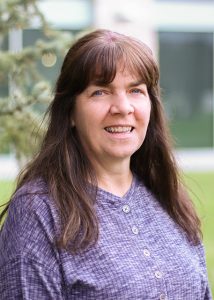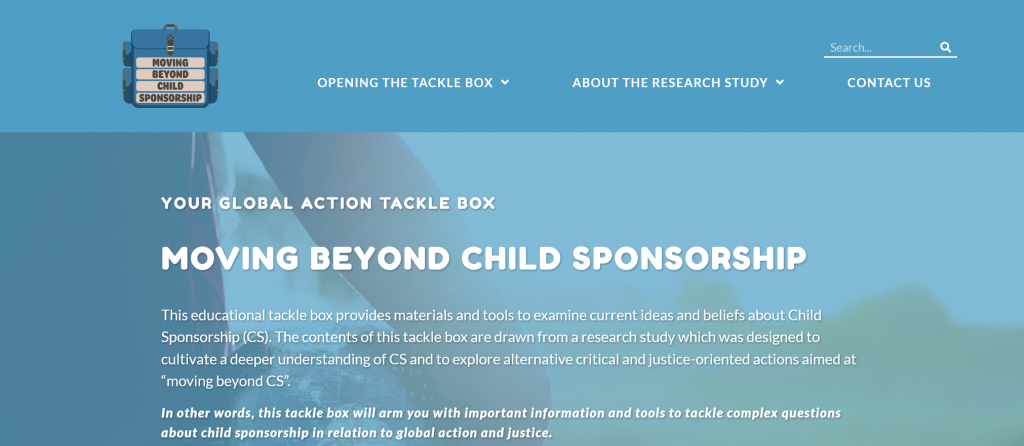
Over the past year, Dr. Kathleen Nolan has been working on an HRI-funded research project entitled “Engaging the Public in Critical and Justice-Oriented Global Actions: Moving Beyond Child Sponsorship.”
Q&A with Dr. Kathleen Nolan
What were the circumstances that led to your research thesis topic? How did this topic become important to you?
I’ve been studying this topic of child sponsorship since about 2018, after becoming aware of the large amount of funds raised through child sponsorship and the questionable ethics involved in the process. I noticed many justice-oriented, non-governmental organizations (NGOs) who were struggling to raise funds for their work in Canada and throughout the world, and yet this charity-only child sponsorship approach was raising billions worldwide. By “charity-only,” I mean that child sponsorship agencies raise funds but do not educate about poverty nor advocate for change.
So, I began a journey to educate myself and others about child sponsorship by reviewing the research literature around child sponsorship and publishing a critique article entitled Better Than Nothing? (https://doi.org/10.33448/rsd-v9i8.5574). The title was selected because that is the question I was asked many times as I conducted this review and critique: “Well, isn’t it better than nothing?” At first, I thought that the article would be the end of my research into the topic but, of course, if you tell people it is NOT better than nothing, you are leaving things rather unfinished. It begs the question of, “If not this (CS) then what?” That led to me applying for an HRI Fellowship to respond to that question.
How are you sharing your findings?
WEBSITE: Your Global Action Tackle Box: Moving Beyond Child Sponsorship: https://www.beyondchildsponsorship.ca
In this educational tackle box, I provide materials and resources designed to tackle child sponsorship (CS) through education and by proposing alternative critical and justice-oriented actions aimed at moving beyond CS. The contents of this tackle box website are drawn from research interviews conducted with academic researchers (in the areas of international development studies, sociology, education, anthropology, and global citizenship education), directors and coordinators of non-governmental organizations (NGOs), and independent consultants and global fund raising managers.
ARTICLE: “Please Continue To Not Sponsor This Child” published in the New Internationalist. Read at: https://newint.org/features/2022/04/04/feature-please-continue-not-sponsor-child
Published in the May-June 2022 issue of New Internationalist, this feature article marks the 40th anniversary of “Please do not sponsor this child,” an article published in New Internationalist in 1982. In “Please continue to not sponsor this child,” I revitalize that 40-year-old story with new information from my research study that demonstrates how, over these 4 decades, the more things have changed, the more they’ve stayed the same. That is, the same set of misguided motivations for sponsors, the same lack of public education around issues of global poverty and inequity and the same level of denial of the role played by the Global North in (re)producing problematic historical patterns of thinking and relationships.
PODCAST: HRI Let’s Talk Research: Episode 3, Moving Beyond Child Sponsorship, with Dr. Kathy Nolan: https://www.humanitiesresearch.org/podcast/
In conversation with Dr. Charity Marsh (Director, Humanities Research Institute (HRI) at the University of Regina), I share information and reflections on the ‘Moving Beyond Child Sponsorship’ research project that was funded through an HRI Fellowship award. The podcast, which is 35 minutes in duration, challenges the listener to reflect on their own views about child sponsorship and the importance of engaging in alternative actions which are critical and justice-oriented.
RADIO INTERVIEW: Garth Materie show on CBC radio (6 minute recording). Listen in at: https://www.cbc.ca/listen/live-radio/1-103/clip/15916615
What impacted you most about your findings?
This was a very unique research project for me to do because I began at ground level with my knowledge, not like my usual research in the area of mathematics education. This means that my learning curve was steep and while I still have lots to learn about all of the topics related to child sponsorship—global citizenship education, international development, etc.—I have come a long way in my understanding. I share with people that the audience for the article, the website and the podcast is the general public (your average citizen), and I know this because I’m right there learning with them! Such a new and important topic to learn about.
What recommendations do you make?
This is an important question because the research project’s aim was to propose alternatives to child sponsorship in the form of justice-oriented actions. The website—or what I call the “tackle box”—is structured around 4 drawers, each having a key focus question that is responded to through the voices of interviewed research participants. Drawer 4 in the tackle box, the one that most directly addresses the question “If not CS, then what?, proposes 5 specific actions that people can engage in as alternatives to the charity-focused approach of sponsoring a child. The actions are not easy, but that is to be expected since the issue of global poverty is not easy either; it is highly complex. Actions suggested in this drawer include, for example, deeper reflection on how the goal to be a ‘good person’ can translate into thinking that the Global South needs to ‘catch up’ to the North (which is just not true) and it can do so by just receiving more money, and that we have no role to play in global poverty; this is a tough one because it means deep examination of one’s privilege and complicity.
What are your future plans?
At the moment, I am thinking that these “Moving Beyond Child Sponsorship” resources could be connected more explicitly to high school and university curricula and to the actions of students who are striving to be better global citizens. Potentially, I will place a call for social studies and social science educators to help me with this task. I think that would be a very important follow-up action for this project.
